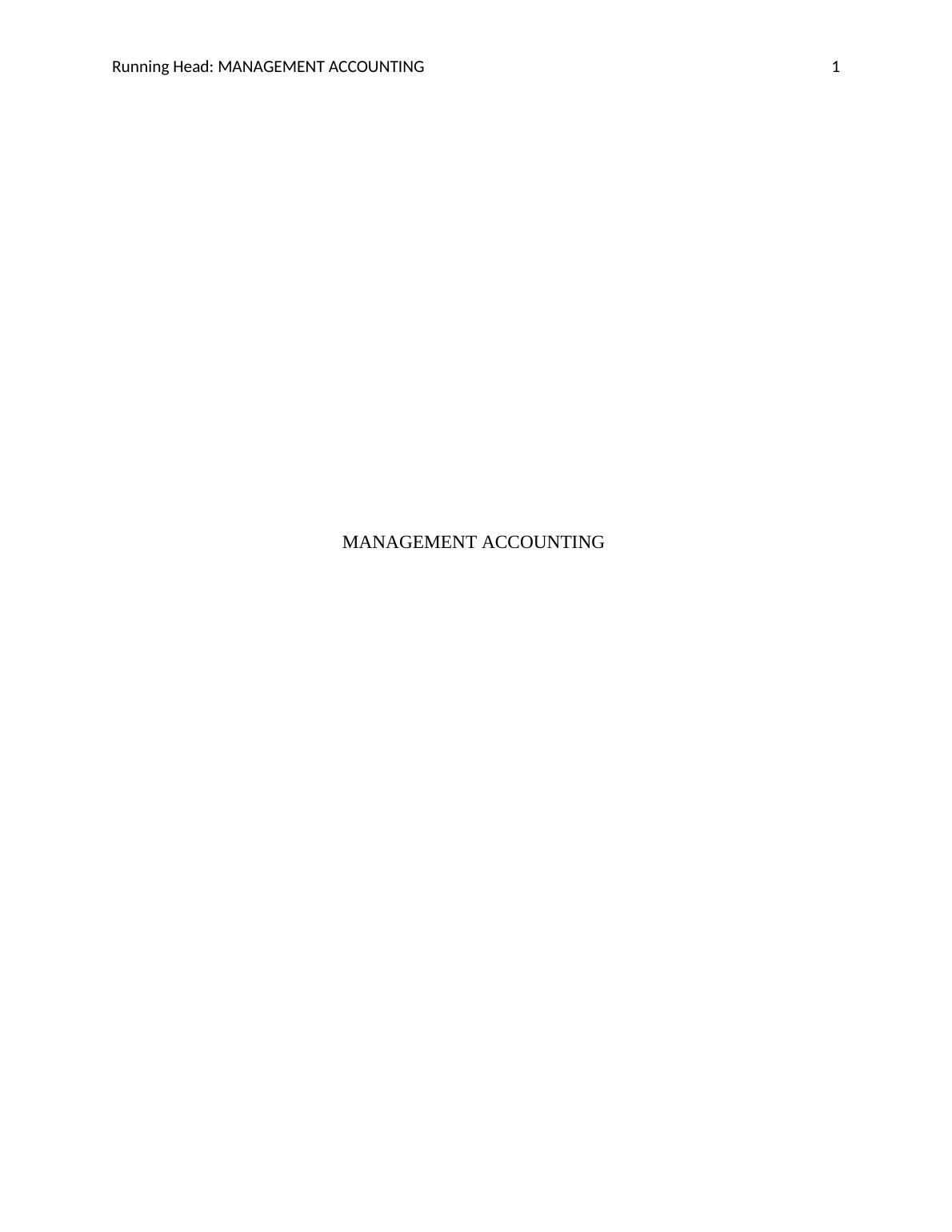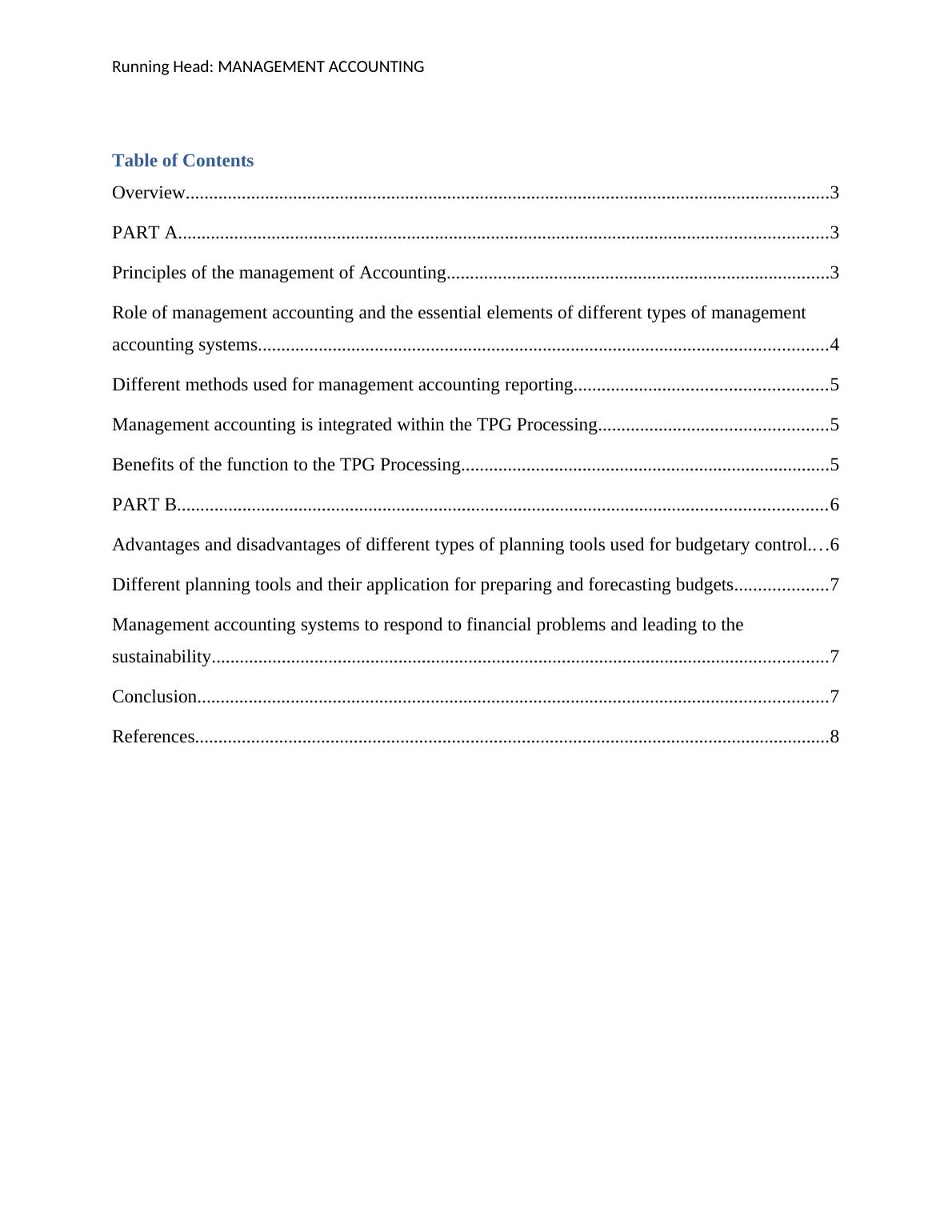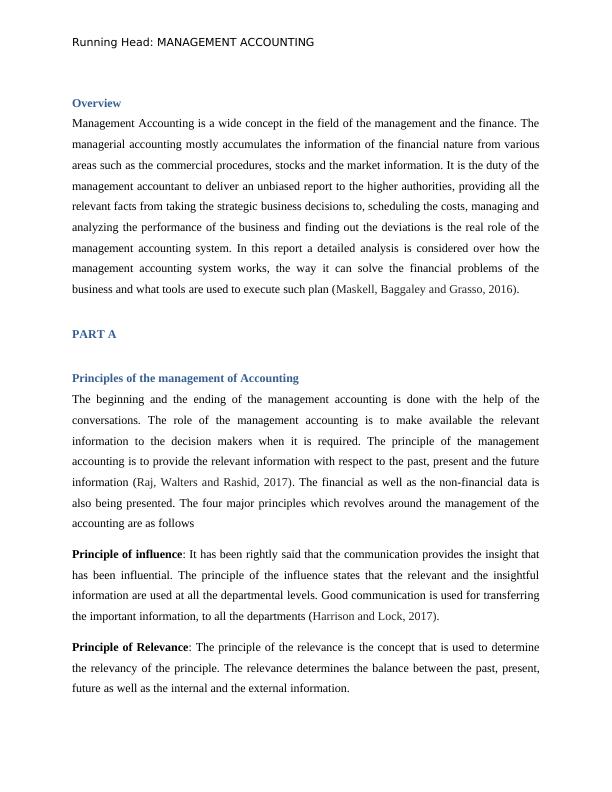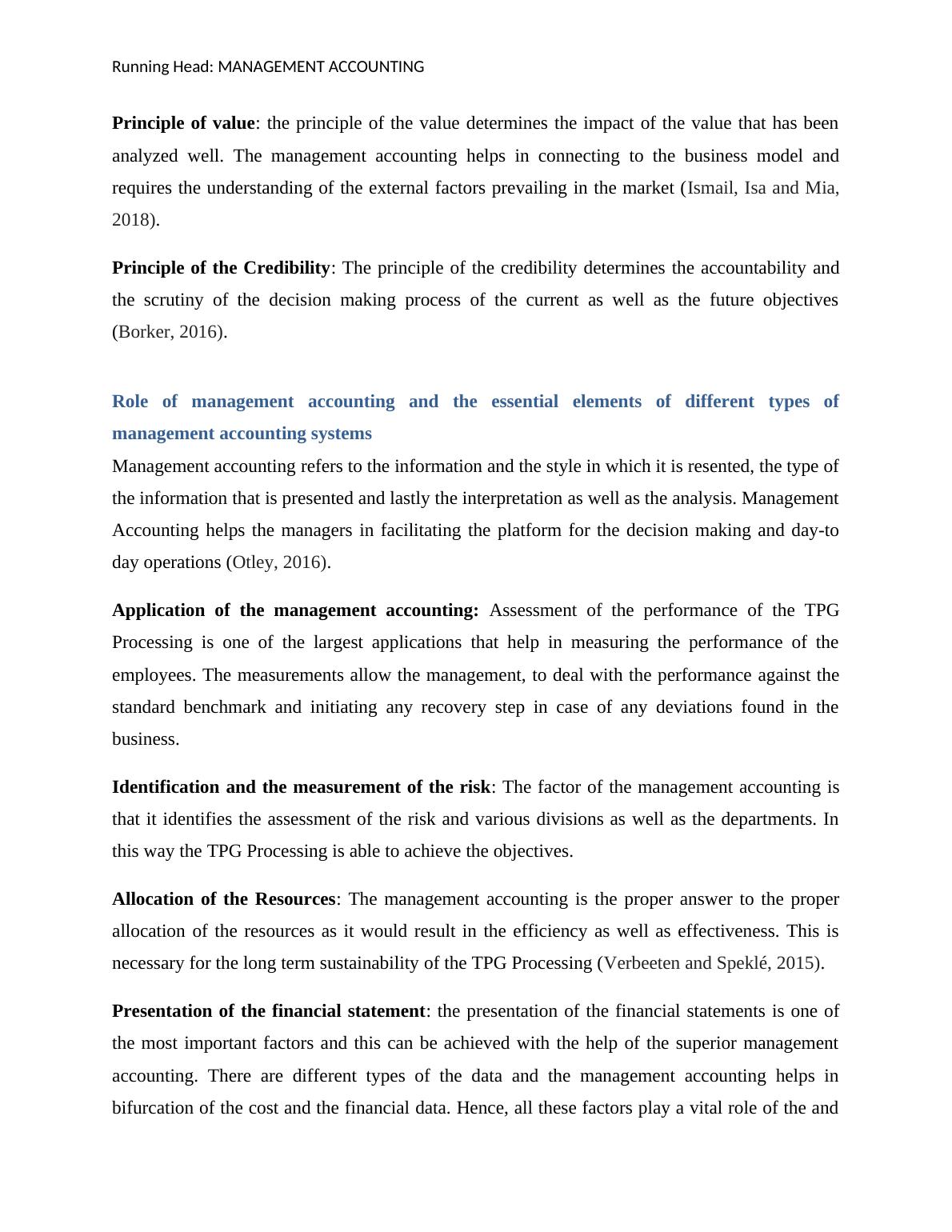Management Accounting: Principles, Role, and Methods
The overall aim of this unit
12 Pages3487 Words462 Views
Added on 2022-11-28
About This Document
This document provides an overview of management accounting, including its principles, role, and methods. It discusses the benefits of management accounting systems to the TPG Processing and explores different planning tools used for budgetary control. It also highlights the role of management accounting in responding to financial problems and leading to sustainability.
Management Accounting: Principles, Role, and Methods
The overall aim of this unit
Added on 2022-11-28
ShareRelated Documents
End of preview
Want to access all the pages? Upload your documents or become a member.
Solved Management Accounting : Assignment
|12
|3843
|44
Management Accounting: Principles, Systems, and Planning Tools
|18
|3808
|158
Definitions and References of Management Accounting System
|20
|7021
|229
Management Accounting: Principles, Systems, Reports, and Functions
|17
|3757
|214
Unit 5 – Management Accounting
|15
|4118
|82
Assignment on Management Accounting Principles
|9
|2550
|142




